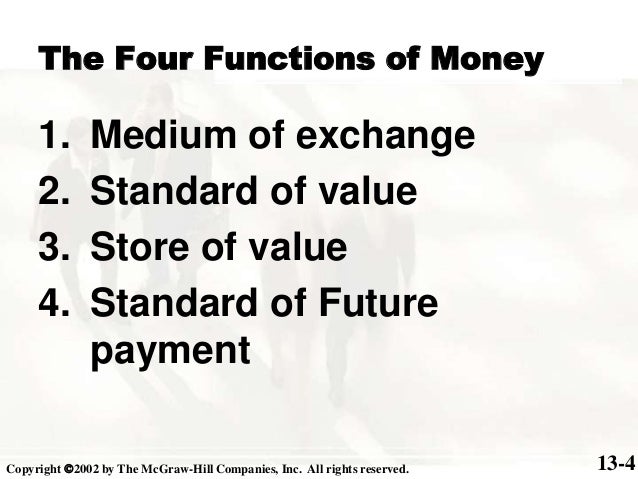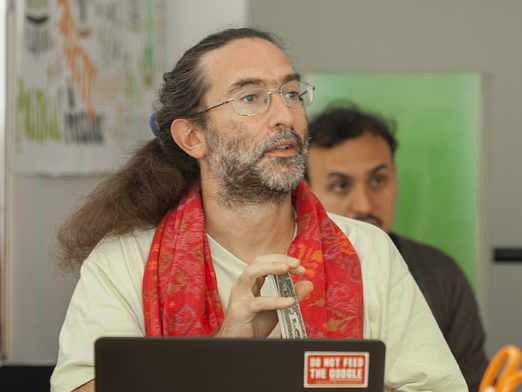
William Stanley Jevons described the four functions of money in 1875:
- a medium of exchange,
- a unit of account,
- a store of value,
- a standard of deferred payment
For some time I marvelled at his clarity, but this week it all unravelled for me. So this post is an attempt at a sanity check.
When we say money is a medium of exchange that means that we use money to exchange what we have for what we want. A medium solves the problem of the coincidence of needs and so we can sell what have for money, then buy what we want from someone else for that same money.
It is a problem though because unless we earned the money / until we spend the money, then it isn't mediating an exchange an exchange at all; any one sale/purchase is simultaneously an exchange in its own right, of money for goods, and two halves of two larger exchanges. In the former case money isn't a medium but the subject of exchange, and in the latter, money hasn't mediated any particular exchange. It is only by looking at the transactions in aggregate and seeing the money flowing that you can say point to an exchange (of a thing someone had for something they wanted) and say that the money did indeed act as a medium of exchange.
So what's the problem?
Well if I inherit a trust fund or make money from interest, or find money on the street or steal it, and I buy lemonade from a child at the curbside, who then drops it down the drain and loses it forever, the function of money that made that transaction a trade and not a theft has not been described. The money was exchanged for lemonade but it was not a medium of exchange. And none of the other classic functions describes this use. The fourth item, standard of deferred payment cannot count because the payment itself is not the standard, and nor was the payment deferred.
Maybe this would be an improvement:
| Medium of Exchange: | Immediate | Extended |
|---|---|---|
| Metric | measure of value |
standard of deferred payment |
| Material | means of payment |
store of value |
But there are more problem with Jevons' categories. In order for money to be a medium of exchange, it must 'store value' between the two halves of the exchange, whether that be a nanosecond or hundred years. So the store of value function is already implied.
And what does it mean to store value? No serious people believe that value resides in objects! Value is a figment of our imagination so it cannot be 'stored' like gold can be stored. Indeed gold or anything can be stored, but the 'value' of it changes every day. Money is special because it is defined as having a constant purchasing power in relation to a certain marketplace. So if you put a dollar in your piggy bank, you know that it will be worth a dollar later on. Its the same with anything, except money is modulated by, inflation/deflation.
And in addition to these four, there are myriad 'functions' to which money can be and often is put:
- a gift than can be changed into anything
- a gift that shows you don't really care
- as an untraceable bribe
- a means of translating a trade surplus into political power
- keeping the riffraff out of the best clubs
- to chop up the lumps of cocaine or as a funnel for snorting it
- burning for fuel during hyperinflation
- etc.
So it doesn't even make sense to try to list these functions as a set. I've been trying for years to formulate some simple description of money but it is really hard because it is different things to different people. Aristotle eloquently described the properties of money, but that was really only applicable to physical money and hence not to debt.
So is it time to trash the 'functions of money' thesis?

Comments